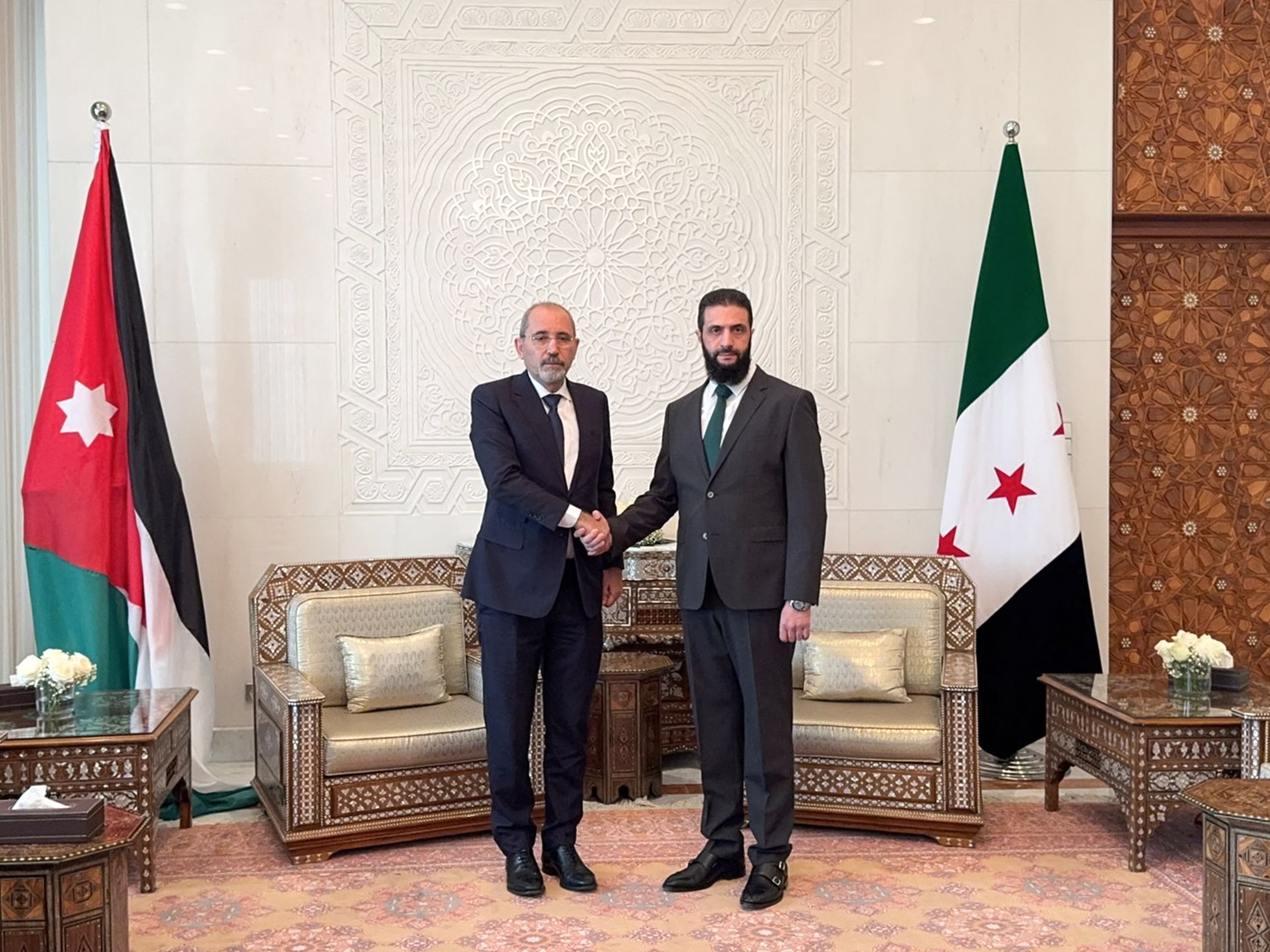Jordan’s foreign minister has held talks with Syria’s de facto ruler Ahmed al-Sharaa in Damascus as regional leaders move to engage with the new administration following the overthrow of President Bashar al-Assad two weeks ago.
“We stand by our Syrian brothers as they start the rebuilding process,” Ayman Safadi told Al Jazeera on Monday.
“We want a stable, secure, safe Syria that guarantees the rights of its people through a transitional process consistent with the aspirations of Syrian people,” Safadi added.
Mohammed al-Khulaifi, minister of state at Qatar’s Ministry of Foreign Affairs, also arrived in the Syrian capital, days after Doha opened its embassy in Damascus after 13 years.
Qatar’s Foreign Ministry spokesperson Majed al-Ansari said al-Khulaifi will hold a series of meetings with Syrian officials “to embody Qatar’s firm position in providing all the support to the Syrian people”.
Monday’s high-profile diplomatic visit came a day after Turkiye’sr foreign minister promised help with the political transition and rebuilding the war-torn country after meeting the new administration.
Hakan Fidan and al-Sharaa on Sunday stressed the need for unity and stability in Syria, as they called for the lifting of all international sanctions against the war-ravaged country.
Turkiye backed the Syrian opposition fighters led by al-Sharaa’s Hayat Tahrir al-Sham (HTS), which spearheaded the offensive that toppled Bashar al-Assad’s 54-year rule.
Safadi also pointed out that the security and stability of Syria are key to Jordan and the region.
“We share a 375km [230-mile] border with Syria. We want that border to be stable, free from terrorist organisations, free from drugs and weapon smuggling,” he told Al Jazeera.
In recent years, Jordan has tightened border controls in a crackdown on drug and weapon smuggling along its border with Syria. One of the main drugs smuggled is the amphetamine-like stimulant Captagon, for which there is huge demand in the oil-rich Gulf.
“We are working out the challenges and discussed the security of our common border with Mr Sharaa today,” Safadi said.
The Jordanian foreign minister also condemned Israel’s attacks on Syria in recent days and said, “It’s an encroachment of Syria’s sovereignty.”
“Israel should withdraw from Syrian territory respecting the 1974 agreement,” he added.
Jordan also hosted a summit earlier this month where top Arab, Turkish, EU and US diplomats and called for an inclusive and peaceful transition after more than a decade of war.
Reporting from Damascus, Al Jazeera’s Hashem Ahelbarra said the new authorities in Syria are eager for more recognition from neighbouring countries.
“As far as [the meeting with] Jordan is concerned, this is going to be a significant boost for al-Sharaa. He wants to build bridges with Jordan. There are many tribal connections along the border between Jordan and Syria,” Ahelbarra said.
Jordan also hosted hundreds of thousands of Syrian refugees, some of whom have returned home after al-Assad’s fall. Jordan claims it hosts some 1.3 million refugees but the United Nations says 680,000 Syrian refugees were registered with it.
Al-Sharaa has hosted Arab, as well as Western diplomats, as he aims for formal diplomatic recognition.
Al Jazeera’s Ahebarra noted that al-Sharaa met Turkiye’s foreign minister yesterday and later met with a top adviser of Saudi Arabia’s king, to discuss the future of Syria.
Regional powerhouse Saudi Arabia is expected to send a delegation soon, according to Syria’s ambassador in Riyadh.
Besides neighbouring Arab countries, al-Sharaa has also received a host of foreign delegations since coming to power.
On Friday, the United States’s top diplomat for the Middle East, Barbara Leaf, had a meeting with Syria’s de facto leader. Leaf said she expected Syria would completely end any role for Iran in its affairs. A handful of European delegations have also visited in recent days.
Sultan Barakat, from the Hamad bin Khalifa University based in Doha, told Al Jazeera: “I think the Jordanians, as well as the neighbouring countries, have been encouraged by Americans visiting [Syria] first … Practically all the regional forces, aside from Iran are very happy the regime change has taken place.”
“They understand the Syrian people have been suffering for over 50 years, particularly the last 13 years it has caused a lot of instability in the region. So everyone is welcoming the stability in Syria,” he said.
Separately, on Monday, Iran affirmed its support for Syria’s sovereignty and said the country should not become “a haven for terrorism” after the fall of President al-Assad, whom Tehran backed militarily.
“Our principled position on Syria is very clear: preserving the sovereignty and integrity of Syria and for the people of Syria to decide on its future without destructive foreign interference,” Iranian Ministry of Foreign Affairs spokesperson Esmaeil Baqaei said in a weekly news briefing.
